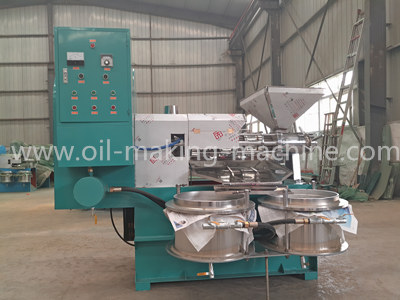
Author:Jintai网络部 Modified date:2024-7-23 16:39:45

Abstract:
This paper aims to provide a comprehensive analysis of the demand for cottonseed oil press machines in Malaysia's palm oil processing industry. It begins by examining Malaysia's agricultural development status and its primary agricultural products. The paper then discusses the nutritional value and market share of palm oil, as well as the current state of the upstream and downstream industries in Malaysia's crop processing sector. Furthermore, it highlights the advantages of China's crop processing machinery manufacturing industry and provides a detailed introduction to cottonseed oil press machines, including their working principle, characteristics, application fields, and new technologies. Finally, the paper explores the value of cottonseed oil press machines in the post-processing of palm oil and the prospects for economic and trade cooperation between China and Malaysia.
Introduction:
Malaysia is a rapidly developing country with a strong agricultural sector that contributes significantly to its economy. In recent years, there has been an increasing demand for cottonseed oil press machines in Malaysia's palm oil processing industry due to their efficiency and cost-effectiveness. This paper aims to analyze the factors driving this demand and explore the potential for further growth in this market.
Malaysia's Agricultural Development Status:
Malaysia is known for its diverse range of agricultural products, including rubber, palm oil, timber, and fruits. The country has made significant progress in modernizing its agricultural practices and improving productivity through the use of advanced technology and sustainable farming techniques. As a result, Malaysia has become one of the world's leading exporters of palm oil, which accounts for a significant portion of its total agricultural output.
Palm Oil Production and Market Share:
Palm oil is a versatile and widely used vegetable oil that is extracted from the fruit of the oil palm tree. It is rich in vitamins A and E, as well as antioxidants, making it a popular choice for cooking and food manufacturing. In recent years, palm oil has gained popularity as a healthier alternative to other vegetable oils due to its high smoke point and neutral flavor. According to data from the United States Department of Agriculture (USDA), Malaysia is the second largest producer of palm oil globally, accounting for approximately 20% of the world's total production.

Upstream and Downstream Industries in Malaysia's Crop Processing Sector:
The upstream industry in Malaysia's crop processing sector includes activities such as land preparation, planting, harvesting, and transportation of crops. The downstream industry involves the processing and packaging of these crops into finished products that are ready for sale. In recent years, there has been a growing demand for efficient and cost-effective machinery that can improve the productivity and profitability of both upstream and downstream industries.
Advantages of China's Crop Processing Machinery Manufacturing Industry:
China is a major player in the global crop processing machinery manufacturing industry, with a reputation for producing high-quality equipment at competitive prices. Chinese manufacturers have invested heavily in research and development to stay ahead of their competitors and offer innovative solutions to meet the evolving needs of their customers. Some of the key advantages of China's crop processing machinery include their durability, energy efficiency, ease of operation, and low maintenance requirements.
Introduction to Cottonseed Oil Press Machines:
Cottonseed oil press machines are specialized equipment used to extract oil from cottonseeds. These machines work by applying pressure to the seeds, which causes the oil to be released. There are two main types of cottonseed oil press machines: screw presses and hydraulic presses. Screw presses use a rotating screw to crush the seeds and extract the oil, while hydraulic presses use a piston to apply pressure to the seeds. Both types of machines have their own advantages and disadvantages, but they are generally considered to be more efficient than traditional methods of oil extraction such as solvent extraction or cold pressing.
Conclusion:
In conclusion, the demand for cottonseed oil press machines in Malaysia's palm oil processing industry is driven by several factors, including the country's strong agricultural sector, the nutritional value and market share of palm oil, and the need for efficient and cost-effective machinery in both upstream and downstream industries. Chinese manufacturers have a significant advantage in this market due to their reputation for producing high-quality equipment at competitive prices. As the demand for palm oil continues to grow, so too will the need for efficient and reliable cottonseed oil press machines to meet the needs of Malaysia's expanding palm oil processing industry.
Prev :
An analysis of the demand for new-type oil press machines in sesame processing towns and cities of myanmar
Next :
Demand analysis for multifunctional oil press machines in singapore's rural soybean processing sector